Key Takeaways
- Not All Flowers Are Safe: Some flowers are toxic, so always research before feeding. Avoid pesticides and chemicals.
- Moderation is Key: Even safe flowers should be fed in small amounts to prevent digestive issues or calcium overload.
- Use Fresh & Organic Flowers: Always choose pesticide-free, organic flowers to keep your guinea pig safe from harmful chemicals.
- Variety is Best: Mixing safe flowers, herbs, and veggies ensures a balanced, engaging diet for your guinea pig.
Hay, vegetables, and a little bit of fruits or treats make up a large part of a guinea pig’s diet. However, did you know that guinea pigs can eat flowers as well? Some even contain vitamins and nutrients that can boost a piggy's health. However, not every flower is safe for them to consume. Most of the flowers that are dangerous for cavies can upset their gastrointestinal systems. It’s important for us, their human friends, to know which kinds are okay to be in their tummies and which kind are essential for their health.

Here are some herbal supplement that you can include in your guinea pig’s diet:
1. Can Guinea Pigs Eat Dandelions?
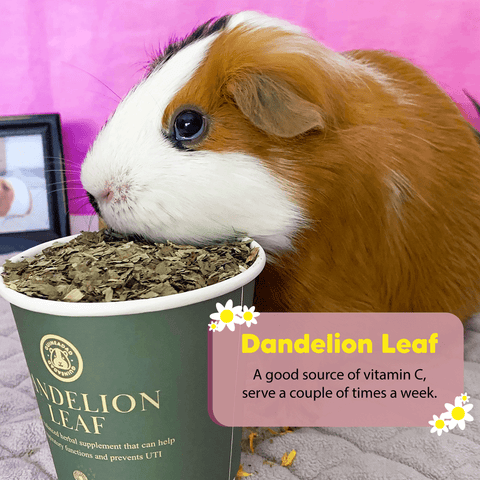
These yellow flowers are easy to spot and are the most common flowers that guinea pigs eat. Its root, stem, leaves, greens, and petals are safe for guinea pigs to eat. Although they are safe to eat, be weary of where Dandelions are found, for some may be sprayed with toxins or urinated by other animals. Always make sure they are untouched by other humans and animals. GuineaDad Herbal Supplements in Dandelion, are a great alternative as as a healthy treat.

They’re a good source of vitamin C, something that piggies cannot produce by themselves. Lack of vitamin C can lead to them getting scurvy (skin and joint problems). Dandelions can also help improve piggies’ digestion. They are safe to consume a couple of times a week.
2. Can Guinea Pigs Eat Marigold?

Guinea pigs can eat the yellow-orange flowers of these plants twice a week. They are rich in fiber, can help with digestion, and assist in dealing with parasites and worms. Marigold can also be used as an ointment form to be used if your piggie suffers an external injury.
3. Can Guinea Pigs Eat Roses / Rosehip?

Not only do these flowers look beautiful, they can also be eaten by cavies in small quantities (5 to 10 grams, 2 to 3 times a week). Guinea pigs cannot produce their own Vitamin C, they need a little help from us humans. Vitamin C is an essential part of their diet due to guinea pigs being prone to Vitamin C deficiencies.

A great alternative for Vitamin C, is GuineaDad Herbal Supplements in Rose Hip. There is a fruit called Rosehip that grows on rose plants. Since it’s a fruit, its sugar content is slightly high but can provide guinea pigs with iron and vitamin C. Do not feed your piggies roses that have been sprayed.
4. Can Guinea Pigs Eat Rosemary?

I’m sure both humans and guinea pigs can both agree that Rosemary has a great smell. Not only does Rosemary smell great, but it can be great for your guinea pig’s diet as well. Rosemary is very rich in Vitamin A, C, Iron and Calcium. Note that too much calcium in any foods consumed by guinea pigs can cause health problems. So any guinea pig safe foods, like Rosemary, should be fed only in moderation.
5. Can Guinea Pigs Eat Lavender?

Yes! Guinea pigs can eat lavender. Lavender is not only known for its calming properties, but also due to its cleansing properties as well. It has 100 compounds such as limonene, which helps stimulates enzymes in the stomach and liver. Lavender is also low in fat and calories which means you won't have to worry about guinea pigs getting fluffy off these. Another benefit of Lavender is its Vitamin C content. Since Guinea pigs are not able to produce their own vitamin C, they must be given with supplements or other forms of food or vegetables.
6. Can Guinea Pigs Eat Raspberry Leaf?

Raspberry leaf can be a delicious treat for your guinea pigs, but did you know that raspberries have been used as a medicine for centuries. Raspberry leaves are known to help support natural metabolism due to its abundance in fiber. Raspberry leaves are also beneficial for pregnant guinea pigs or guinea pigs that have recently given birth as it is known to ease labor and avoid Urinary Tract Infections as well.
7. Can Guinea Pigs Eat Chamomile?

Last but not least Chamomile! I’m sure many of you have tried chamomile teas and treatments to relax you. Well, chamomile is also great for those of you that have very anxious or stressed out guinea pigs. Chamomile aids in easing tension and pain. It can also be used to help digestive issues such as bloating or loss of appetite. It also is a great source of fiber, so it can easily be considered a nutritious snack for your guinea pig as well.
Don’t forget that like many veggies or fruits, herbs should only be fed to your guinea pig 2-3 times a week. They should definitely not overshadow their average consumption of hay. One of the best things about these herb options is that they are safe for human consumption too, so if you don’t want your guinea pig to feel left out, maybe have a few leafy snacks with them. If you don’t want to go and find these delectable plants for your guinea pigs, consider trying GuineaDad Herbal Supplements, which are available in Marigold, Rosehip, Dandelion leaf, Raspberry leaf, and Chamomile. Vitamins and nutrients are an essential part of a guinea pig’s diet, so consider hand feeding these herbal treats to your guinea pig, or even sprinkle some in their hay for them to forage!
Flowers that are Toxic for Guinea Pigs
Some of the flowers that are TOXIC to guinea pigs are: daffodils, sunflowers, sweet peas, asters, nasturtiums, chickweed, goldenrod, mallow, and yarrow. Do not risk your guinea pig’s health with flowers that you’re unsure about. Only serve them thoroughly washed flowers that you’re sure are picked from clean locations, like your own garden. Always remember to feed them in moderation. Too much of a good thing can be bad!
Try GuineaDad's Treat Sampler to find out which treat your guinea pig enjoys the most. Make eating sessions comfortable and easy to clean with our GuineaDad Liner! It soaks up all the liquids that you want to keep off your floors, and are easy to clean!









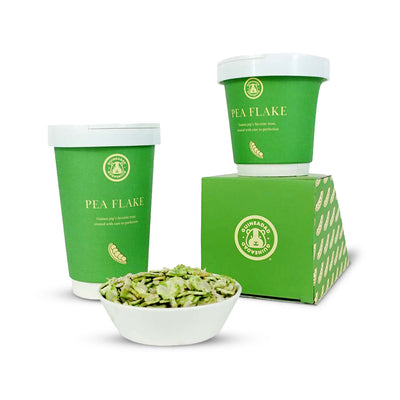
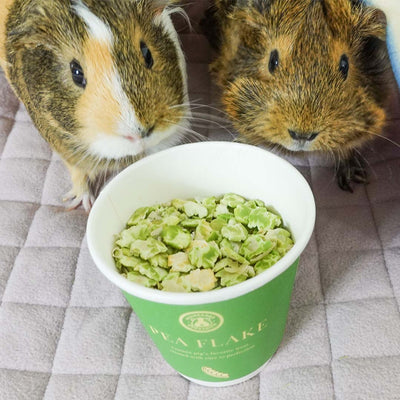
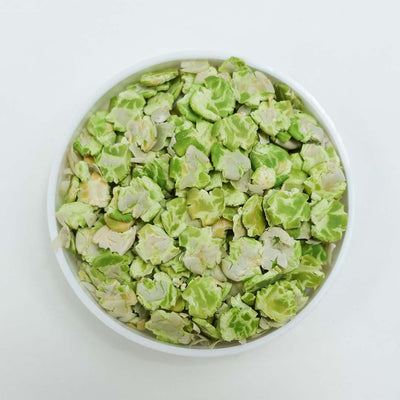
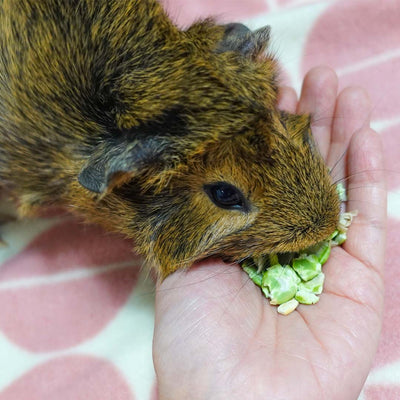
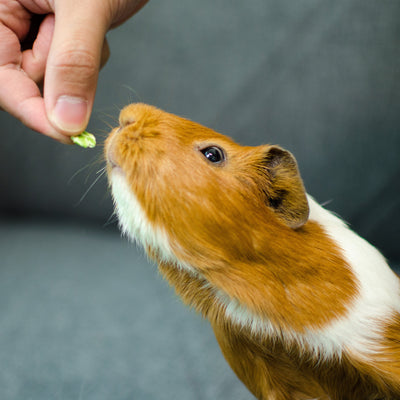
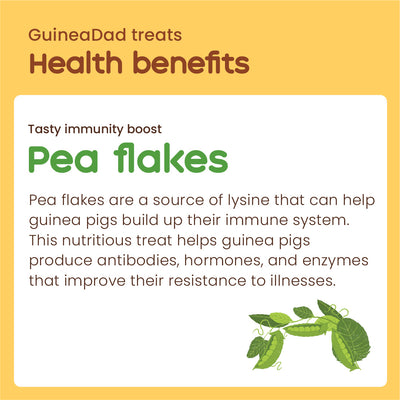
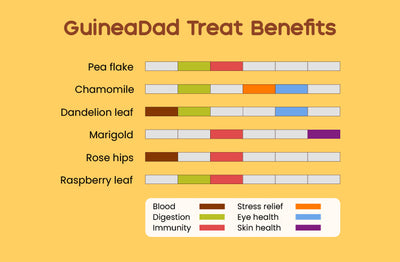
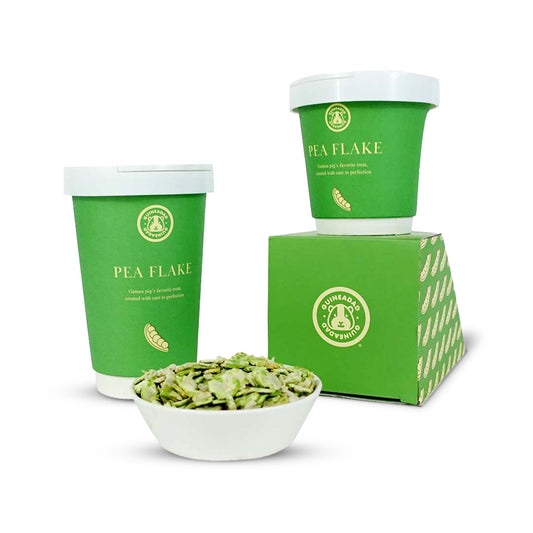
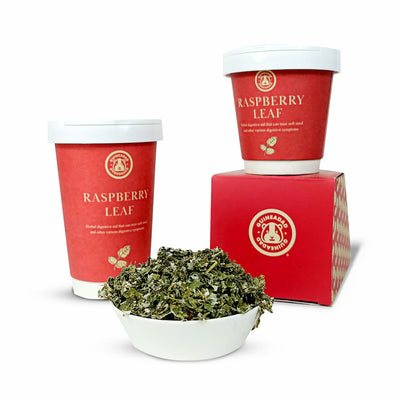
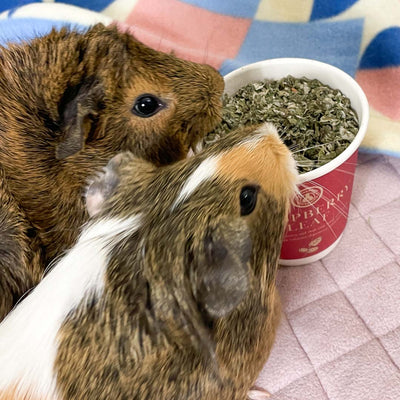
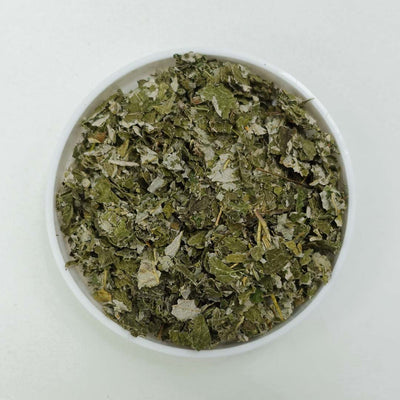
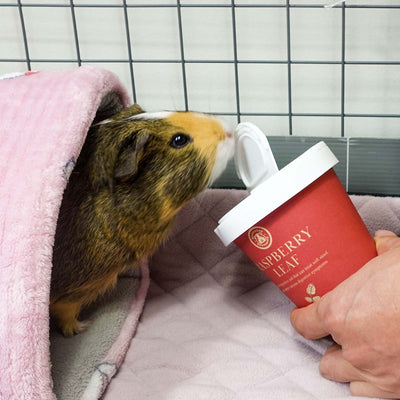
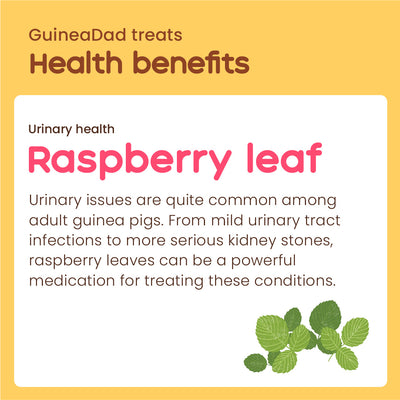
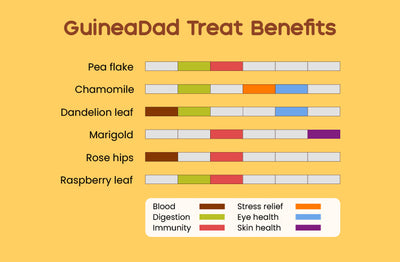
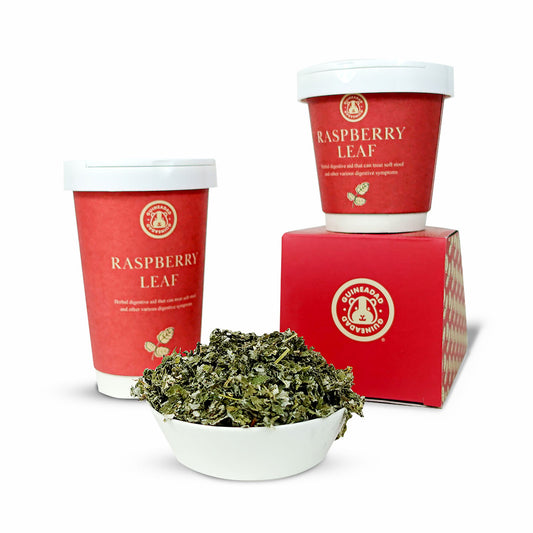
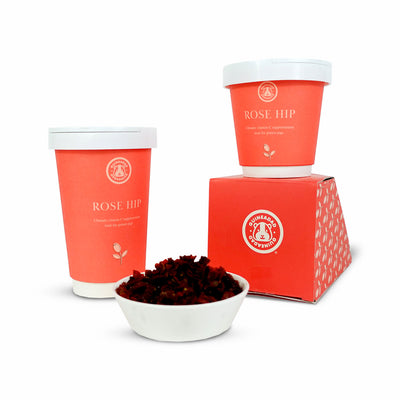
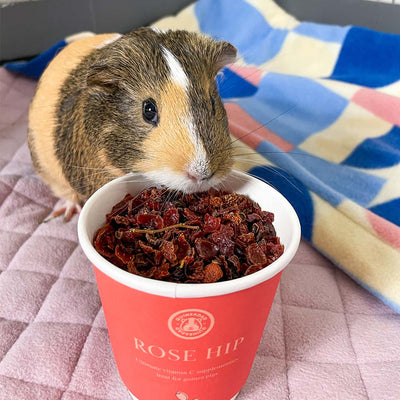
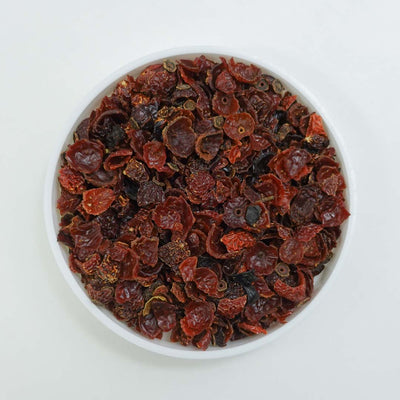
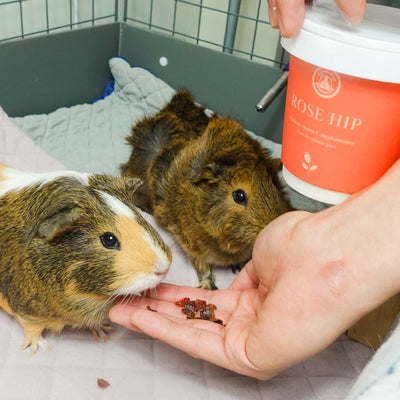
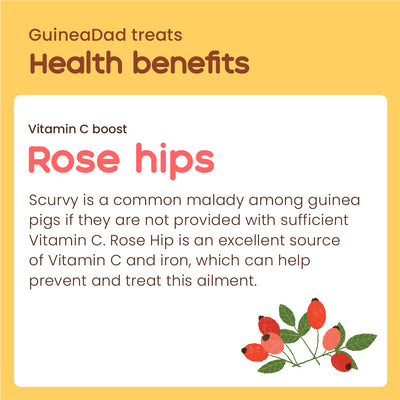
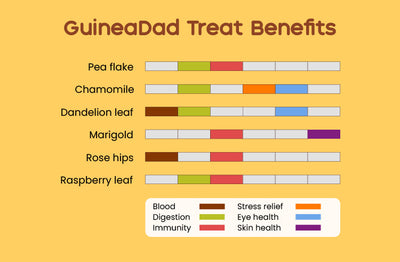
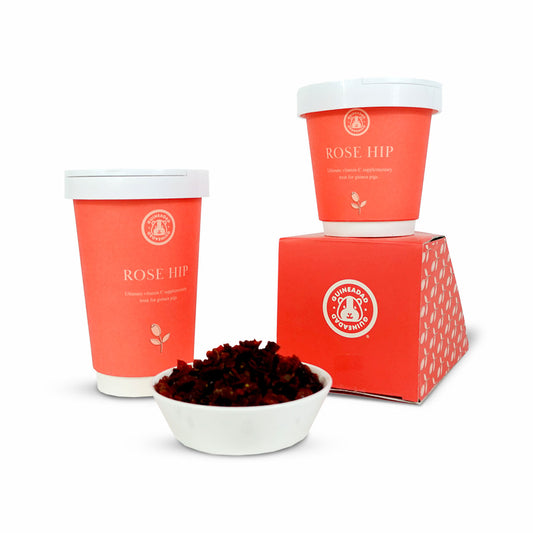
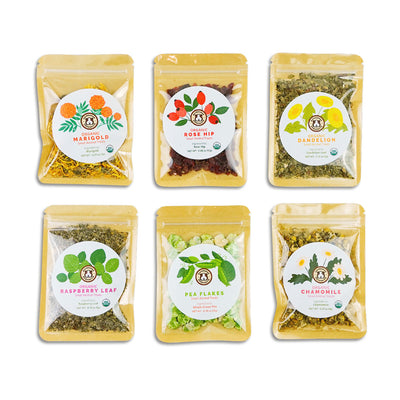
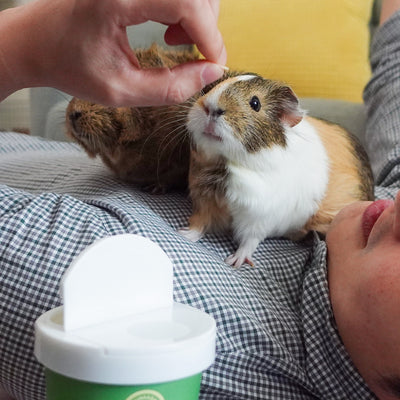
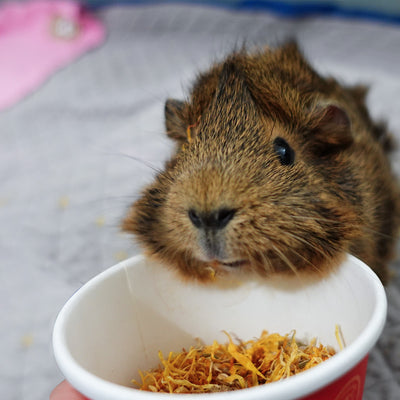
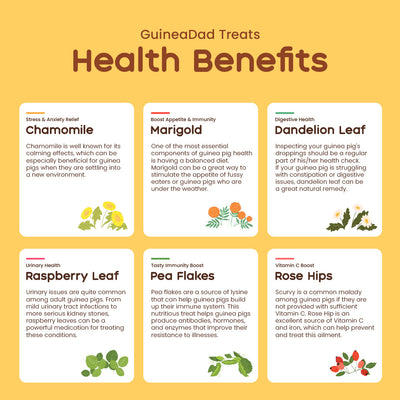
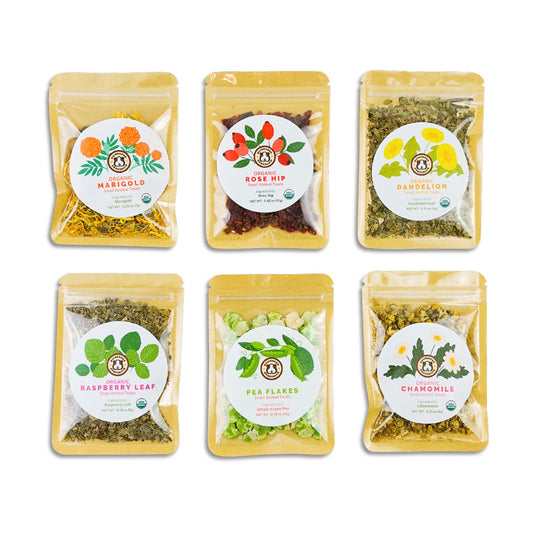
32 comments
Hi Michelle – it is not safe for guinea pigs to eat gladiolus leaves. Gladiolus plants contain toxins that can be harmful to guinea pigs if ingested. The leaves, flowers, and other parts of the gladiolus plant contain chemicals called glycosides, which can be toxic to small animals like guinea pigs.
Consuming gladiolus leaves can lead to various health issues in guinea pigs, including digestive upset, vomiting, diarrhea, and potential organ damage. It’s crucial to provide guinea pigs with a diet that consists of safe and appropriate foods to ensure their well-being.
Stick to feeding your guinea pigs a diet primarily composed of hay, fresh vegetables, and a small amount of high-quality guinea pig pellets. There are plenty of other safe vegetables and greens that you can offer your guinea pigs, such as romaine lettuce, spinach, cilantro, bell peppers, carrots, and cucumbers.
My guinea pig just ate a piece of gladiolus leaf, is it harmful for him?
Can guinea pigs eat jacaranda flowering
I have 2 females, Nuggie, and Bean, This helps to know which flowers/plants, they can eat. Now I can feed my guinea pigs dandelions (without pesticides or animal urine) safely, without worrying that they are gonna get sick.
I thought the name of this was Guinea DEAD and I was like wuh